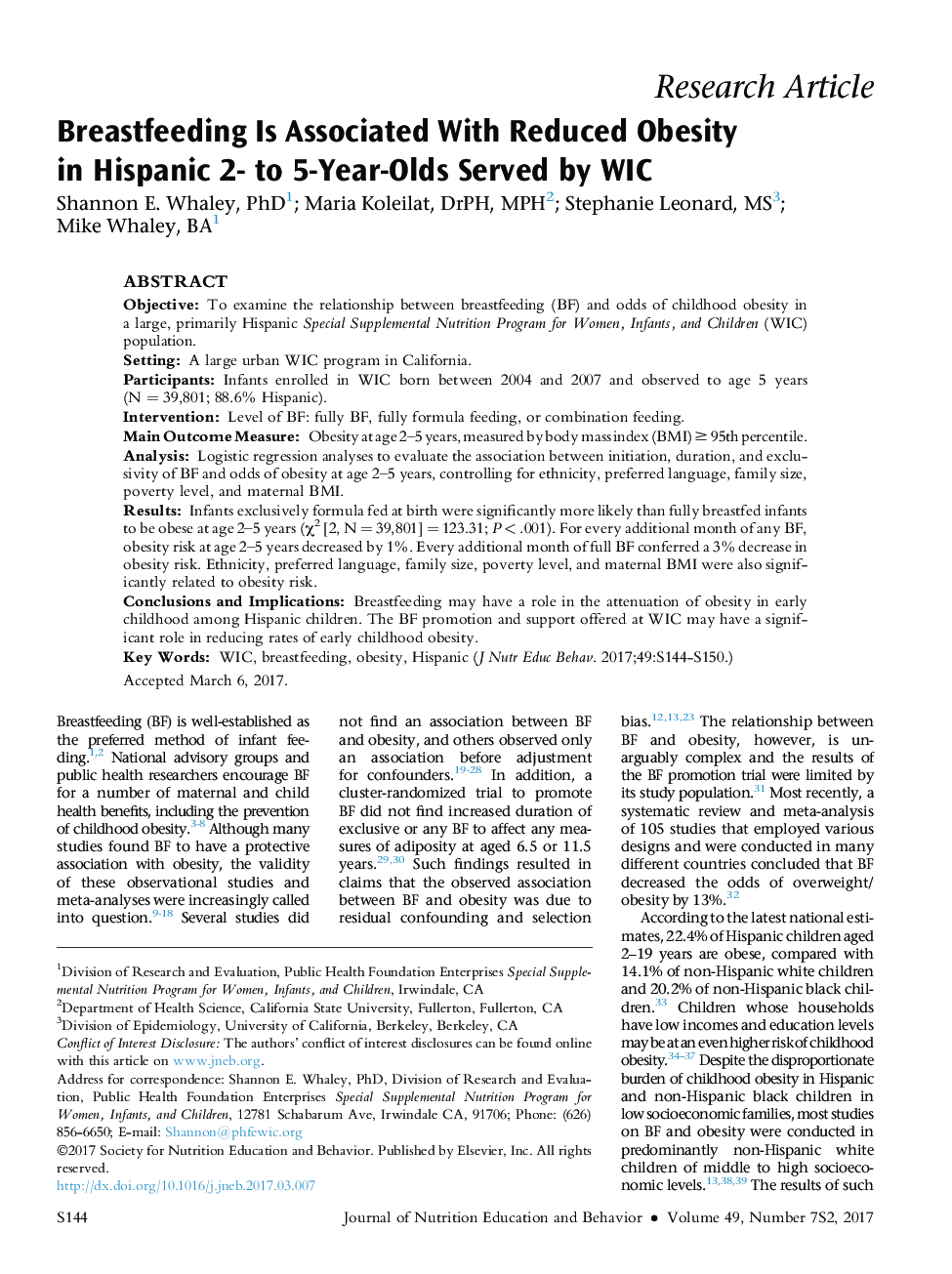| Article ID | Journal | Published Year | Pages | File Type |
|---|---|---|---|---|
| 4939363 | Journal of Nutrition Education and Behavior | 2017 | 8 Pages |
ObjectiveTo examine the relationship between breastfeeding (BF) and odds of childhood obesity in a large, primarily Hispanic Special Supplemental Nutrition Program for Women, Infants, and Children (WIC) population.SettingA large urban WIC program in California.ParticipantsInfants enrolled in WIC born between 2004 and 2007 and observed to age 5 years (N = 39,801; 88.6% Hispanic).InterventionLevel of BF: fully BF, fully formula feeding, or combination feeding.Main Outcome MeasureObesity at age 2-5 years, measured by body mass index (BMI) â¥Â 95th percentile.AnalysisLogistic regression analyses to evaluate the association between initiation, duration, and exclusivity of BF and odds of obesity at age 2-5 years, controlling for ethnicity, preferred language, family size, poverty level, and maternal BMI.ResultsInfants exclusively formula fed at birth were significantly more likely than fully breastfed infants to be obese at age 2-5 years (Ï2 [2, N = 39,801] = 123.31; P < .001). For every additional month of any BF, obesity risk at age 2-5 years decreased by 1%. Every additional month of full BF conferred a 3% decrease in obesity risk. Ethnicity, preferred language, family size, poverty level, and maternal BMI were also significantly related to obesity risk.Conclusions and ImplicationsBreastfeeding may have a role in the attenuation of obesity in early childhood among Hispanic children. The BF promotion and support offered at WIC may have a significant role in reducing rates of early childhood obesity.
